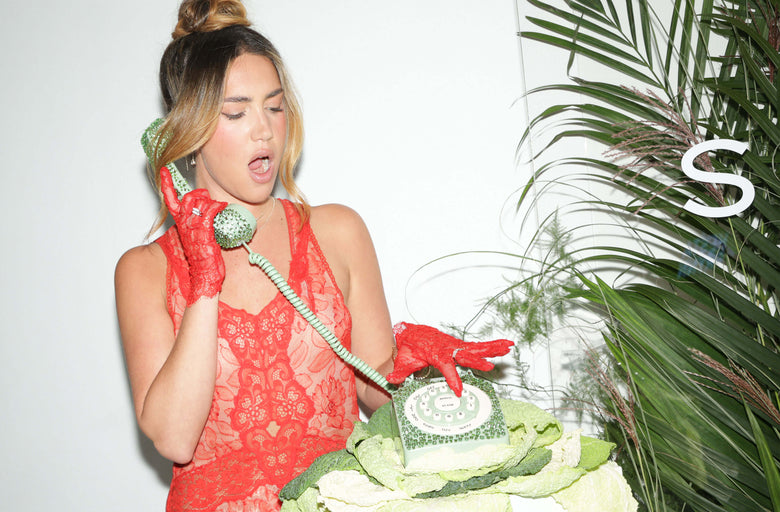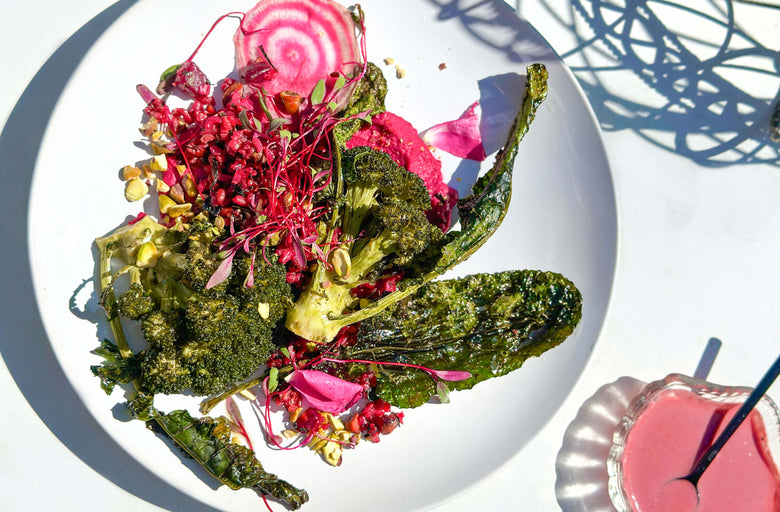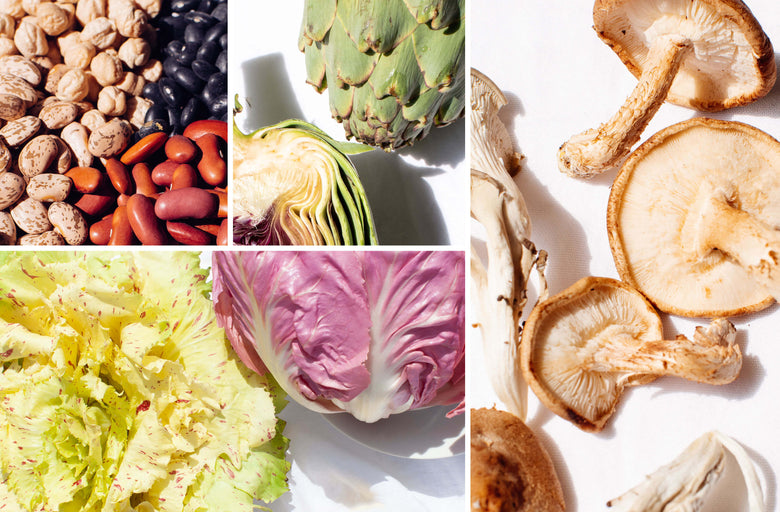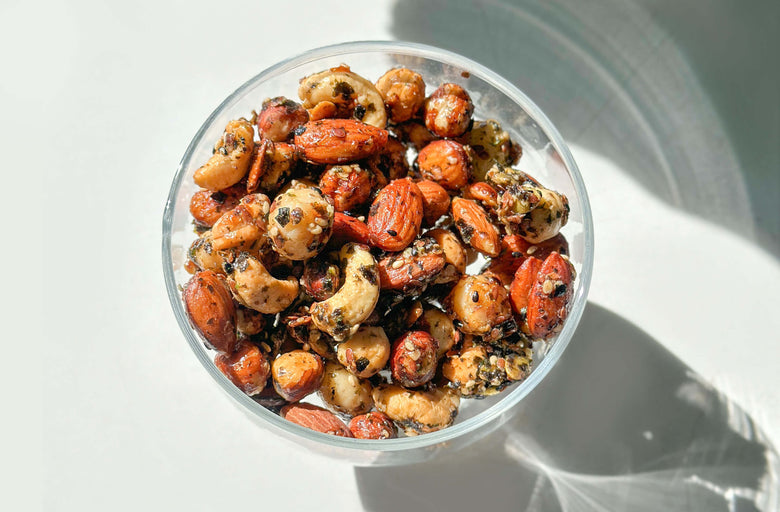You’ve made the decision to break up with your hormonal birth control, for good – congrats! Whether you’re ditching your birth control due to health concerns, in order to get pregnant, or simply because it feels like it’s time, there are a few things you should know, and a number of practices you can implement to make the transition off of synthetic hormones easier.
WHAT TO EXPECT WHEN COMING OFF THE PILL
Every woman experiences some degree of transition symptoms when coming off the pill or another form of hormonal birth control. This depends on your own unique biology, your overall health, and other factors such as the amount of time you were on the pill.
Common transition symptoms include:
- Breast tenderness
- Changes in breast tissue
- Changes in sex drive
- Pelvic pain
- Headaches
- Fatigue
- Hair loss
- Acne
- Dry skin and brittle nails
- Mood changes
- Irregular periods, or in some cases, absent periods
If you were on hormonal birth control to manage symptoms like irregular periods, painful periods, acne, or even conditions like PCOS and endometriosis, you should be aware that these symptoms and conditions will present themselves again when you come off the pill. This is because hormonal birth control simply masks the symptoms without addressing the root cause of the issue. I don’t say this to discourage you, but to let you know that you now have an opportunity to get to the bottom of your hormonal health issues!
WHAT HAPPENS WHEN YOU DITCH YOUR HORMONAL BIRTH CONTROL
When you’re on hormonal birth control, your body is fed synthetic reproductive hormones throughout the month and has to make little to no reproductive hormones of its own.
A natural cycle is a complex and beautiful thing! During your first few bleeding days (the start of your cycle) your brain scans your body and registers low levels of estrogen and progesterone. It then sends a signal to your ovaries to start making more estrogen. As estrogen levels build, this eventually triggers another chemical messenger from the brain to induce ovulation. After ovulation, estrogen levels decrease, and the sack on the ovary that released the egg starts to produce progesterone. This sack, called the corpus luteum, only lives about 10-14 days unless the egg is fertilized. If the egg is not fertilized, the corpus luteum dies and stops producing progesterone, resulting in your period. (This is the vastly abridged version, but still, you can see a lot has to happen!)
When you come off hormonal birth control, your body has to first detox out all of the synthetic estrogens from the pill, then start making enough estrogen to ovulate, and then produce enough progesterone to sustain the second half of the cycle. This can be complicated by nutrient deficiencies caused by the pill, and other factors – so it can take some time!
SUPPORTING YOUR BODY THROUGH THE TRANSITION
- Eat plenty of healthy fats.
The base of the reproductive hormones estrogen and progesterone is cholesterol, which we get from fats. You need enough healthy cholesterol to produce adequate hormone levels. Focus on nourishing your body with healthy fats from avocados, olive oil, ghee, nuts and seeds, and fatty fish.
- Up your fiber intake.
Fiber plays an important role in hormone detox. If you are not getting enough fiber, you will have a hard time removing the synthetic estrogen remaining from your hormonal birth control out of your body. Greens, veggies, beans, chia seeds and clean, whole grains are all good sources.
- Boost your micronutrients.
You want to focus on replenishing the nutrients that the pill depletes, such as B vitamins, magnesium, zinc and selenium. Focus on food sources first, but you may also want to try targeted supplementation (especially with Bs and magnesium) for a period of time to replenish your nutrient stores.
- Eat fermented foods!
The pill in particular has an antibiotic effect on your gut and microbiome. Eat fermented veggies like kimchi and sauerkraut or take a high-quality probiotic. Digestion is the cornerstone of our health!
- Try a post-pill cleanse.
The sooner you get rid of the synthetic estrogens from the pill, the faster your body can ramp up its own natural hormone production and get into hormonal balance. To boost your body’s estrogen-detox, eat as clean as possible. Focus on organic foods and avoid conventional dairy and meats entirely since they often contain hormones. You may find that its best to avoid dairy entirely, at least in the beginning. You also want to be mindful of your caffeine and alcohol intake since both congest your liver, which needs to do most of your estrogen-detox work! Consume plenty of water instead.
- Eat more cruciferous vegetables.
In addition to eating fiber for estrogen-detox, up your intake of cruciferous vegetables like cauliflower and Brussels sprouts. These vegetables contain high amounts of a compound called DIM (diindolylmethane), that helps to break down estrogen.
- Try seed cycling.
You can also try a holistic nutrition tool like seed cycling, in which you consume different seeds at different parts of your cycle, to boost mineral intake, help break down estrogen at the right time and bring your hormones into balance. (You can get my free seed cycling guide here).
- Be patient and listen to your body.
It is not uncommon to feel fatigued, tired or moody in the months after you stop taking your hormonal birth control. Your natural hormone levels may remain low for a few cycles, and its important to respect that and to give your body the rest that it needs. You may find that it’s helpful to sleep a bit more, or to switch to lower intensity workouts for a period of time.
You can use any of these tools whether you’ve just quit your hormonal birth control, or if you ditched it months ago and are still looking to boost your cycle health. For more information on timing your transition off of birth control, working with your doctor to have IUDs or implants removed, and more tips and tricks for a healthy cycle, you can sign up for my free 1-week Cycle Reboot here. While it may take some time, with the right support, your body will be well on its way to a natural, healthy and fertile cycle in no time!






